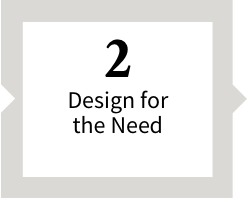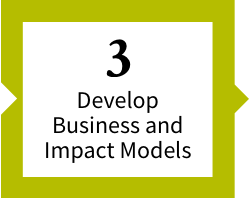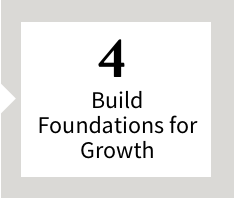Stage 3: Develop Business and Impact Models

|

|

|

|
You have a solid hypothesis. But how do you know if it can grow into a viable social venture?
At this stage of development, you start to figure out what’s needed to bring your great idea to life, and how it might scale over time. What is your strategy for laying a foundation that leads to long-term impact? You need to know what the value proposition is for all of your stakeholders. As you define the impact value, you must also consider how to attract enough money and support to launch and sustain your operation.
Another essential step is articulating your theory of change. This is a high-level overview of how you think your solution will lead to social impact. The process of building your theory of change may reveal gaps or potential challenges that you did not anticipate. Many funders will expect to see your theory of change and will require evidence that your impact model will work.
Moving into the operations phase requires you to think systemically in a measurable way. Consider how you’re going to measure and evaluate the outcomes of your work. You need to have a serious framework and plan for measuring impact. Your plan should be designed for learning now and into the future. Over time, the data will reveal if your solution is working and if the impact value it delivers is strong enough to continue investing in.
Your hypothesis will evolve for as long as you are working to solve the problem. Successful social ventures regularly revise their theory of change based on their learnings. There are also constant changes in the operating environment – including policies, social norms, and technology – that require social entrepreneurs to prioritize iteration in the short- and long-term.
Key areas of focus
- Evaluating potential business models
- Developing impact models
- Your mission
- Your theory of change
- Social Return on Investment (SROI)
- Identifying pathways to scale
- Creating a plan to measure impact
Key questions to ask
- How do I build a social venture that has impact and is financially sustainable?
- How will I communicate my theory of change/plan for social impact?
- What is my business model?
- Who will pay for this solution (my revenue)?
- Where can I get the operating capital (who are my funders/investors)?
- How will I measure social impact?
- How will I know if my social venture is a success?
Build a theory of change and plan for feedback

